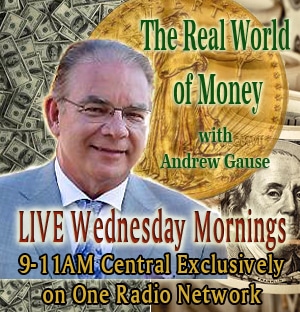–>
Note from Patrick Timpone: We do not know who exactly this man is, on our next talk with Andrew Gause we’ll ask him about some of these reasons. If all accurate, it is intrquing.
–>
Editors note: Minyanville Professor Rob Roy contributed to this article.
1. Stocks are firmly in a downtrend.
The S&P 500 is down roughly 20% from the market peak on October 11, 2007.
2. Corporate spreads are rapidly widening.
Investment grade bonds yielded as little as 0.30% more than U.S. Treasuries did back in 2003 – but are now as much as 2.30% above U.S. Treasury rates.
3. Everyone I know is saying “All is well, buy America.”
The crowd is usually wrong at extremes.
4. European equities are taking out the lows of the year.
European large cap stocks are now down more than 28% after peaking on June 20, 2007.
5. The capital-raising window is closed.
Firms are losing their ability to raise new capital to sustain their operations. There have been several new corporate deals in the past couple of weeks that have failed to raise the desired amount of money.
6. Earnings estimates are too high.
Forward projected earnings are wildly inflated. This error in forward earnings estimates creates a false sense of security in stock prices.
7. While much of the move in financials is done, it should spread to other industries.
Financial companies provided credit to consumers in all forms (credit cards, auto loans, boat loans, RV loans, home equity loans, mortgages, etc.). Credit is the consumers life raft: without it, he founders.
8. If the “best of breed” are missing their numbers, what happens to the real dogs?
Well managed companies (like United Parcel Service (UPS), Federal Express (FDX), Nike (NKE), Best Buy (BBY) and Fortune BrandsFO), for example) should do well in any environment. If they’re not able to meet even their own projections, what can we expect for less well managed companies? (
9. We are entering the worst part of the Presidential cycle.
In an election year, extra fiscal and monetary stimulus is usually applied by the incumbent party to “juice” the economy and help voters feel good about the current leaders. After the election, this extra stimulus is removed and the real work of making change usually begins.
10. We are at war.
On multiple fronts.
11. The consumer is tapped out.
Mortgages cannot be refinanced, credit card balances are maxed, retirement savings are now being exhausted and existing portfolio values are declining.
12. Corporate buybacks are gone.
Buybacks have dropped to a bare $1 billion per day on average.
13. Net equity issuance is very high.
Especially in the finance area, where new capital is needed just to stay in business.
14. Oil above $100 is very bearish.
This functions as an extra tax on beleaguered consumers.
15. The savings rate is 0.
From 1960 to 1985, the personal savings rate hovered between 5% and 10%. Since then, it has steadily declined and now hovers around 0%. When you have no savings, retirement is simply impossible.
16. The U.S. is actually one of the best performing markets in the world this year.
The S&P 500 is at 12.8%, compared with the United Kingdom (14.9%), France (22.9%), Australia (-18.9%), Germany (-21.9%) and Hong Kong (-20.5%).
17. Companies are technically insolvent.
From General Motors (GM) to Ford (F) to Lehman Brothers (LEH), insolvency is the order of the day.
18. Level III assets continue to grow.
19. “Credit rot” is spreading from sub-prime to prime.
20. The dollar is sinking to new lows.
The dollar index, a measure of our currency against foreign currencies, has now declined from 120 in early 2002 to an all-time low of 72. Our ability to buy things from the rest of the world is declining.
21. The Federal Reserves balance sheet is impaired.
This is a result of accepting low-quality securities from investment banks in exchange for nearly $400 billion in Treasuries.
22. Mutual fund equity cash remains low.
Though they once hovered around 8%, normal cash levels have steadily declined to less than 4%. This means that mutual fund managers will be forced to sell stock in order to honor investorsredemption requests. This creates downward pressure on equity prices as investors flee.
23. Individual investors are now taking money from their retirement accounts to survive.
And thats just sad.
24. The market is technically on the verge of breaking down.
25. We’ve broken the 200-week moving average in the Dow Jones for the first time since 2003.
This is a very long-term and bearish sign of breakdown.
I could go on and on and on.
Of course I could be wrong: Its possible that funds will find a way into the market and will temporarily boost stocks, but I doubt it.
Risks remain high and, as always, being cautious will only lose you opportunity – not capital.
Nothing contained in this article is intended as a solicitation for business of any kind or for investment in the firm.

'25 Reasons To Remain Cautious' has no comments
Be the first to comment this post!